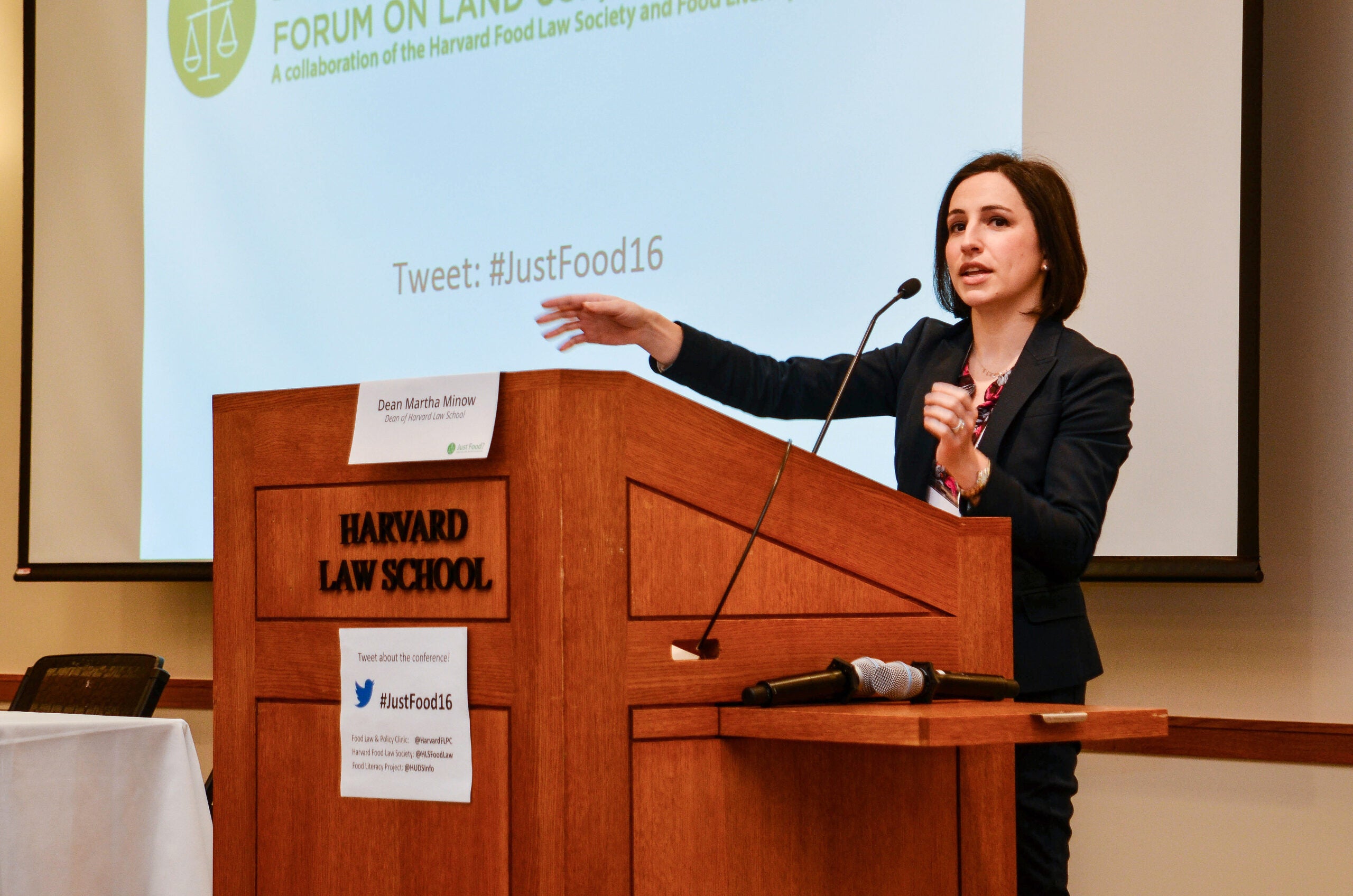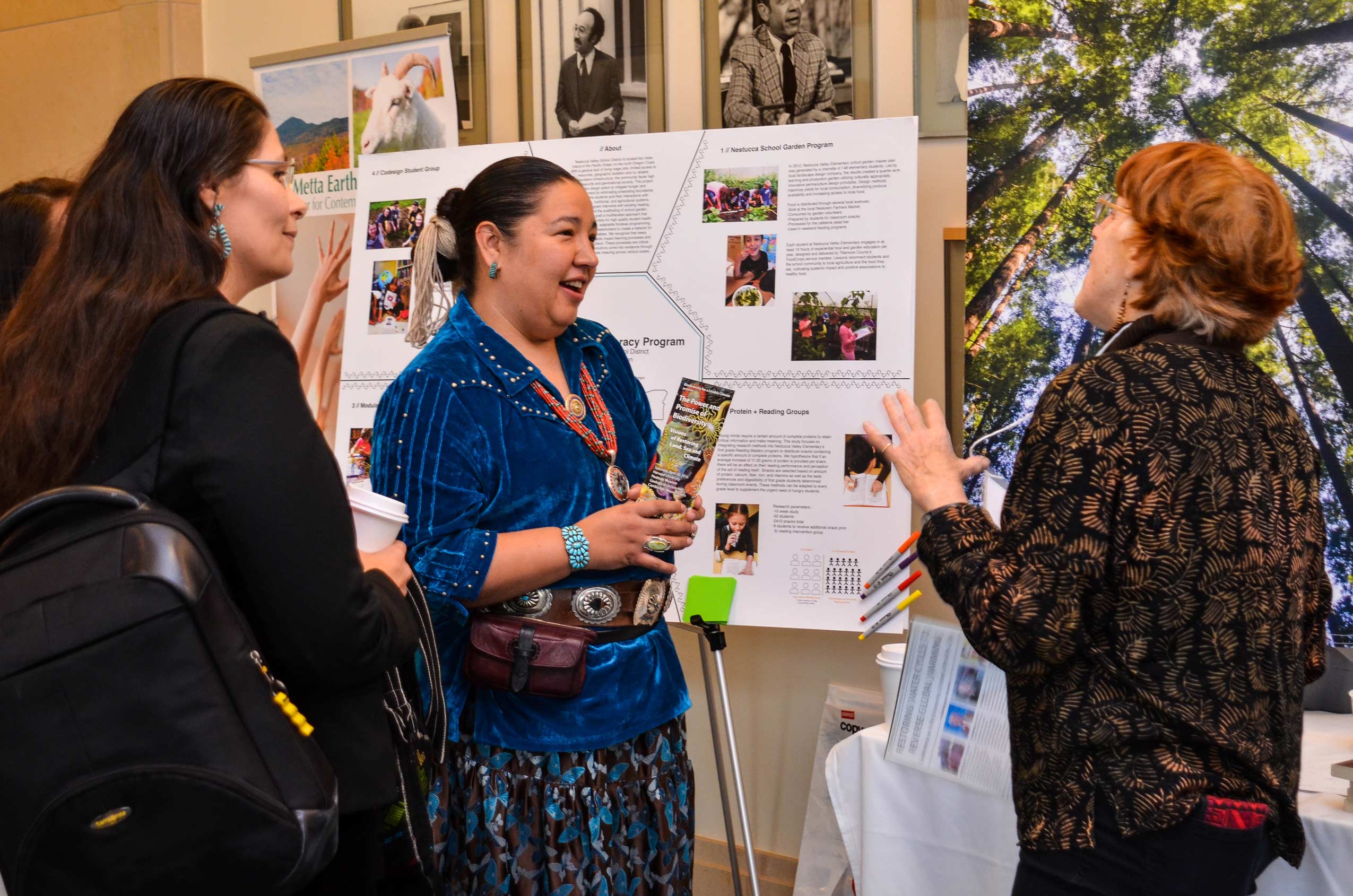
This spring, more than 370 people interested in food systems attended a two-day conference at Harvard Law School, the 2016 Just Food? Forum on Land Use, Rights and Ecology.
In her welcoming remarks, Dean Martha Minow reported on efforts at HLS to make food and food justice a priority, including the creation of the Food Law & Policy Clinic, the first clinic of its kind in the nation.
According to Emily Broad Leib ’08, the clinic’s director and an assistant clinical professor at HLS, the conference not only offered the opportunity to explore land use, “an issue that is often overlooked in the food policy context,” but it also served to “show students that they can organize events that can make a real impact on the dialogue around these issues.”
With panels on indigenous landholders, urban farming in Detroit, and the costs of food’s convenience—just to name a few—the conference invited participants to consider how diverse communities have experienced the food system. Kristin Beharry ’16 said she was captivated by the ability of speakers to “continuously weave the theme of power relationships to land rights through their narratives and show just how much work must be done to protect not only Native American land rights but also Native American culture.”
The forum was a convening of scholars and farmers as well as activists and educators. Broad Leib noted that the range of panelists and participants enriched the forum for all. “The conference offered the opportunity to explore the challenge of land access from a variety of perspectives, including indigenous populations such as our clinic partners in Navajo Nation, landless workers in Brazil, and black farmers in the U.S., among others.”
The energy of the panelists and participants was the highlight of the conference for Mark Godfrey, a Harvard MBA student and head of the Food & Beverage & Agribusiness Club of Harvard Business School. Godfrey was reminded that “enormous value is created when we bring together diverse perspectives, challenge our assumptions, develop deeper understanding of issues, and then build coalitions to effect positive change.”
Over the course of two days, the participants learned from panels, posters, films, keynote sessions, and discussion with each other. The “combination of experience and emotion on each panel complemented the academic presentation,” noted Alex Leone ’16, president of the Harvard Food Law Society. Leone hoped that participants walked away not only with “knowledge of systemic injustices throughout our food system” caused by inequitable land use laws and policies, but also “new connections and conviction that will empower them as food consumers.”
Speakers and panelists emphasized the theme of land as power, according to Ona Balkus ’13, senior clinical fellow in the Food Law and Policy Clinic. Balkus discussed “ongoing challenges to their sovereignty when it comes to water and land rights” faced by tribal nations across the country. For Balkus and other attendees, the panels “underscored the urgent need for reform of federal and state laws that stand in the way of Native Americans fully enjoying their land.”
The Just Food? Forum on Land Use, Rights, and Ecology was coordinated by the Harvard Food Law Society and the Harvard Food Literacy Project. Other co-sponsors included the Harvard’s Food Law and Policy Clinic, a division of the Center for Health Law and Policy Innovation at HLS; the HLS Animal Law & Policy Program; the Harvard Office for Sustainability; the Food & Beverage & Agribusiness Club of Harvard Business School; and the HLS DOS Student Grant Fund.
